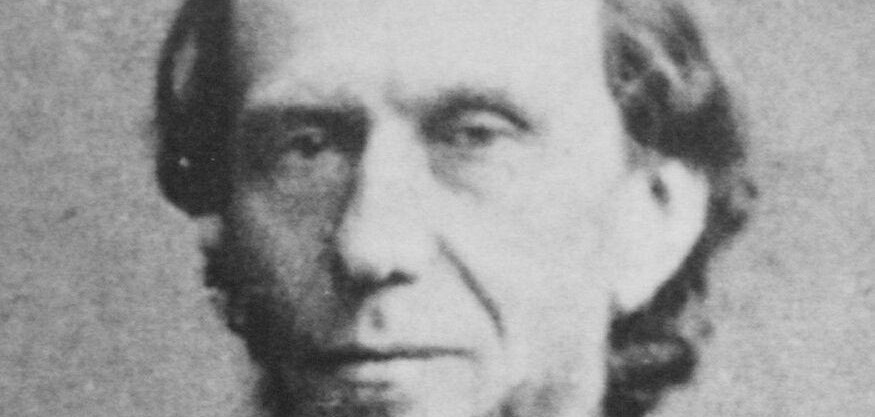Andrew Murray, Reformed pastor who worked chiefly in South Africa, was born on May 9, 1828 and died at a ripe old age in 1917. He wrote scores of books, most of them having 31 chapters and intended to be read a chapter at a time for one month. They are devotional books, and if the term “devotional book” makes you think of light-weight, empty-headed heart-warming comments, you should try out Andrew Murray. His work is powerful, rich in ideas, and mentally stimulating.
It’s hard for me to imagine anybody not respecting Andrew Murray, and even harder to imagine me respecting anybody who didn’t respect Andrew Murray. But recently I ran across some criticisms of Murray’s work, written at the time of their publication, by a theologian who I respect a great deal: B. B. Warfield. It might be perverse to post this on Andrew Murray’s birthday, when everybody ought to be encouraged to read this great spiritual writer, but Warfield vs. Murray is just too interesting to keep to myself.
This is Warfield’s review of one of my favorite Andrew Murray books, The Spirit of Christ: Thoughts on the indwelling of the Holy Spirit in the believer and in the church (London: James Nisbet, 1888). The review was published in The Presbyterian Review Vol. 10 No. 38 (1889) Page 334-5.
The author treats this greatest of all Christian subjects with adequate reverence and tender devoutness, but scarcely with sufficient judiciousness.
The mystical spirit has been always of the greatest value to the Church, and sometimes the sole preservative of true Christianity in a materialistic or legalistic age. But no tendency requires a stricter watchfulness to preserve it from extravagance. Mr. Murray’s mystical tendency shows itself especially in laying too great stress on the duty of being conscious of the Spirit’s working within us, and in an odd insistence on the duty of exercising “faith in the indwelling Spirit” as the source of life –as if the Scriptures proclaimed the necessity of any other faith than that in Christ. Here he introduces an undesirable dualism into the Christian life, finding two moments of development in it corresponding to the two objects of this twofold exercise of faith.
He rightly modifies Mr. Boys’ statement as to the nature of prayer for the Spirit, and modifies it in the right direction; but it is a great pity that he adopts the confusion of the charismatic and gracious work of the Spirit upon which Mr. Mahan bases his separation of regeneration and sanctification. We must not separate these two works of the Spirit: it is no more true that whom God foreknew, them also he predestinated to be conformed to the image of his Son, and whom he predestinated, them also he called, and whom he called, them also he justified, than it is that whom he justified, them also he glorified, which surely includes more than external acceptance into the heavenly glory. The essence of this passage is to teach that God selects his children, chooses the goal to which he shall bring them, and brings them safely to that goal; and it justifies us in saying that without exception “whom he regenerates, them also he sanctifies.” The separation of these two begets the very evil which Mr. Murray deprecates, of failure to live up to our privileges.
Enthusiastic minds like Mr. Murray’s need to exercise special care in adopting forms of statement from other writers. We meet every now and then in the book with a phrase or a doctrine the implications of which have scarcely been thought through by him. For example, the crude trichotomistic anthropology of p. 34 is an excrescence on his thinking, and is adopted only to be laid aside. On p. 54 he speaks for a moment like a fully developed Schleiermacherite. And every now and then we strike against a sentence delivered as if it contained the very kernel of the Gospel, which quite puzzles us. For example, what idea of ‘holiness’ underlies the assertion that ‘It is as the Indwelling One that God is Holy,’ offered in defence of the statement that the Spirit is ‘the Holy Spirit’ only as sent forth by the incarnate Christ? And what shall we do with the statement made in the same connection, ‘It is not the Spirit of God as such, but the Spirit of Jesus that could be sent to dwell in us,’ in the face of the biblical usus loquendi? The book is marred everywhere by such straining after novel and striking forms of statement, a vice, we may add, very common with books of this class.
